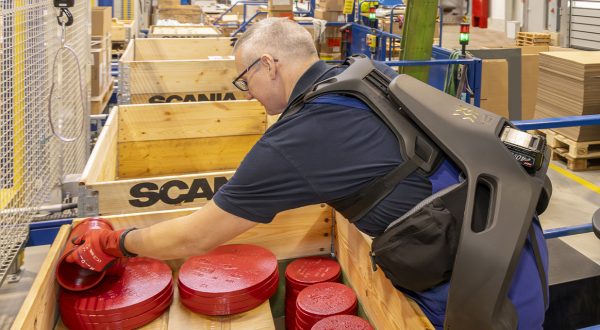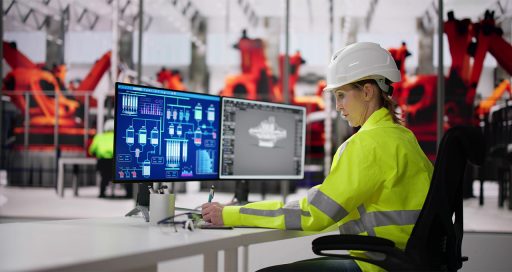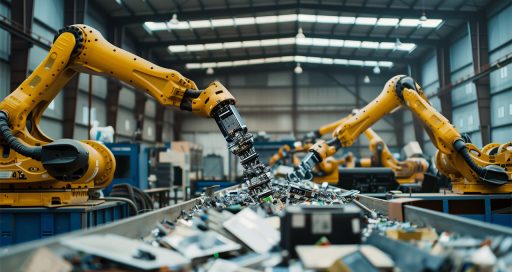The automotive industry remains cautious about applying artificial intelligence to its production processes, expressing concerns about efficiency and profitability.
![]()
On the face of it, the progress made by artificial intelligence (AI) in the automotive industry appears to be modest. So says Capgemini, which has carried out a study on the topic (1). According to the results of the study, the number of companies in the sector deploying AI at scale has only risen from 7 % to 10 % worldwide since 2017. However, Capgemini claims that large automotive OEMs (original equipment manufacturers) could boost their operating profits by up to 16 % with scaled AI implementation.
“AI will only carve out a place for itself if it has the potential to drive major improvements in manufacturing performance and if it delivers an acceptable return on investment”
“You have to put things into context,” says Thomas Hoffmann, business development director at Actemium, “the automotive industry is probably the most automated sector. The vast majority of tasks are already automation-based.” According to the expert of this VINCI Energies brand specialising in industrial processes, “the roadblocks to faster deployment of AI are twofold: first, these new technologies are not yet mature enough to be systematically standardised, and second, the culture of the industry means that it is extremely demanding in terms of performance and the safety of the end product.”
There’s no doubt that the automotive sector could find many areas in which to deploy AI-powered applications in manufacturing or assembly processes. “But it’s worth bearing in mind that AI will only carve out a place for itself if it has the potential to drive major improvements in manufacturing performance and if it delivers an acceptable return on investment,” insists Hoffmann, who points out that “managing the IT environment and cybersecurity is key to securing production plant.”
Multiple applications
The benefits of AI are already apparent in terms of lean manufacturing. The technology helps optimise productivity by incorporating the concept of Overall Equipment Efficiency (OEE). In its study, Capgemini refers to Audi, which is testing an AI-based system that uses smart cameras to identify tiny defects and cracks in sheet metal.
Artificial intelligence also delivers benefits in real-time inventory management, in particular by preparing kits of parts to be assembled on assembly lines. Smart asset management relies on large amounts of data. AI has the capacity to analyse this kind of big data, making it possible to improve asset management and recommend optimised plans and actions. For example, Cooper Standard Automotive tracks all the data of its plants worldwide in real time.
Decision support
“Today, factories can monitor the condition of production plant and heavy machinery using IoT sensors. This is referred to as predictive maintenance,” says Hoffmann. “Each sensor is linked to a piece of equipment and collects vibration data each time the equipment is moved or used. This fine-grained analysis of plant helps prevent breakdowns before they arise and before they disrupt the assembly line.”
For example, General Motors deployed a cloud-based image classification tool on around 7,000 robots. This pilot project, designed to spot component issues before they happened, helped detect 72 incidents that could have led to production delays.
AI should be seen primarily as a decision support tool. “In most cases, the human must remain the final decision maker,” warns the Actemium business development director, who believes however that “AI, which is already used in the auto manufacturing process, will be deployed to an even greater extent in the development of new electric cars.”
(1) Capgemini surveyed 500 executives from automotive companies in 8 countries between December 2018 and January 2019. In-depth interviews were also conducted with a number of industry experts and entrepreneurs.
20/02/2020





